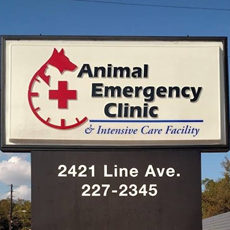Library
-
No, it is not a Lab with a perm - those fashionable and form-fitting curls are all natural for the aptly named Curly-Coated Retriever. One of the most eye-catching of the sporting breeds, the Curly boasts curls that would take us hours at the hairdresser to achieve, yet the coat maintenance of the Curly is surprisingly simple.
-
The Dachshund has an unmistakable look – long low body on short legs - that has earned it the nickname "Wiener Dog." Full of attitude, the Dachshund seeks the spotlight and demands attention, but offers loyalty, affection, and plenty of comedy in return.
-
Of all dog breeds, the Dalmatian is the most easily identified because of his distinctive coat. The image of a large white dog speckled with black spots all over his body, sitting on top of a fire truck or running along side a horse-drawn coach, is embedded in the minds of everyone, dog lover or no, regardless of age.
-
Dandie Dinmont Terriers are live-wire dogs that enjoy rousing play, yet can be as tough as nails when extracting a rodent from its den or when standing up to a challenge.
-
This handout discusses the growing trend for designer dog breeds – the crossing of pure dog breeds to create dogs that combine “the best of both worlds.” The pros and cons of this practice are highlighted, along with some of the more common designer breeds currently available.
-
Dobies can be great family pets and most have been bred to live happily in the human environment. These large beauties are fiercely loyal, inspiring to look at, and endearing once you get to know them. They will protect you and stand by you in any situation.
-
Dogues de Bordeaux are calm, patient and extremely loyal. They will get very attached to their owners, and being left alone for long periods will break their hearts.
-
Eclampsia, also referred to as hypocalcemia or puerperal tetany, is an emergency medical condition associated with a life-threatening drop in blood calcium levels that occurs in nursing mothers. Mothers that are especially attentive to their kittens seem to be more likely to develop eclampsia. Signs and treatment are discussed.
-
Eclampsia, also referred to as hypocalcemia or puerperal tetany, is an emergency medical condition associated with a life-threatening drop in blood calcium levels that occurs in nursing mothers. Mothers that are especially attentive to their puppies seem to be more likely to develop eclampsia. Signs and treatment are discussed.
-
Egg binding is not uncommon in birds and may be resolved easily if treated early; if not, the bird may become critically ill. Egg binding occurs when the female bird is unable to expel the egg from her body. Egg-bound birds are usually weak, not perching, often sitting low on the perch or on the bottom of the cage and are straining as if trying to defecate or to lay an egg. Treatment varies depending upon how sick the bird is, as well as the location of the egg and the length of time the bird has been egg bound.




